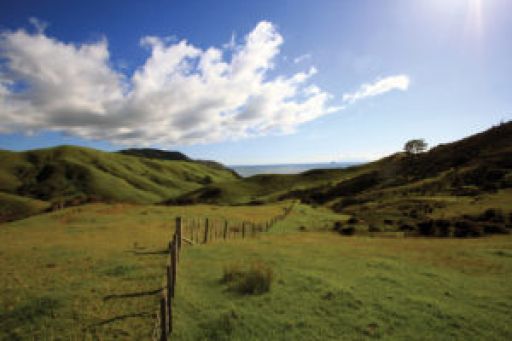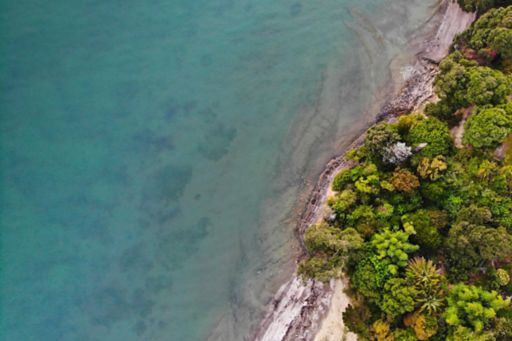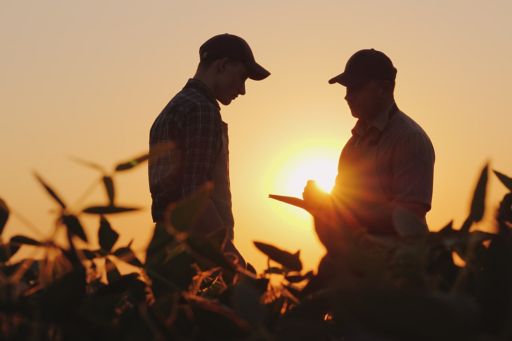KPMG Agribusiness Agenda 2021 - Launched
[16 June 2021]
Today we launch KPMG’s Agribusiness Agenda 2021. We are pleased to share the insights and foresight gained from our research and conversations with over 170 experts from across New Zealand and the world.
This years’ Agenda is one of the largest ever, exploring the current ‘State of the Nation’ with key themes from here in New Zealand, in-depth consumer insights from global markets, and exploring the future of food for the New Zealand and the world.
The KPMG Agribusiness Agenda has been launched at the Official Opening of the Mystery Creek Fieldays this-morning, and a 10 minute summary recording of our session, followed by a Q&A with Ian Proudfoot can be viewed as a recorded video (12:30pm - 16th June on the schedule), both at the Fieldays TV link here.
You can find the full 2021 KPMG Agribusiness Agenda document available on our website here.
Previous issues
To read previous editions of Field Notes please click here.
This Week's Headlines
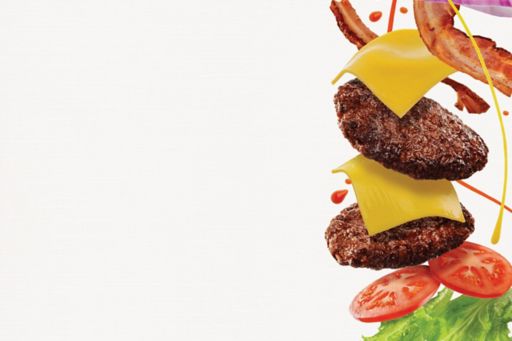
State of The Nation:
There’s a great big beautiful tomorrow… for New Zealand?
After hosting round table discussions and a comprehensive survey with executives and leaders from across New Zealand, KPMG’s Global Head of Agribusiness, Ian Proudfoot shares his insights into the key challenges, opportunities and actions required for New Zealand to secure our future in the food and fibre system. (pg. 4-33)
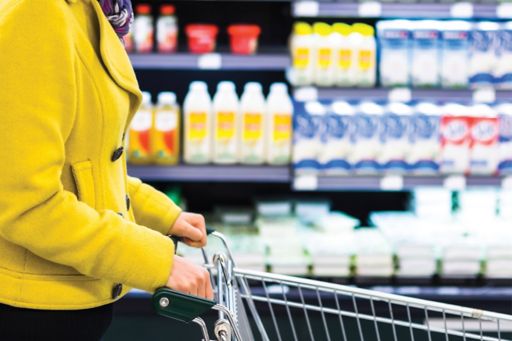
Consumers Now and in the Future:
Inside the minds of current and potential consumers
Our authors conducted research and interviews with leading consumer experts from around the world, focusing on specific geographical markets, and market trends.
Read about the growth opportunities in our existing markets, some significant potential future markets, and key demographics and themes that will drive the purchases of tomorrows consumer. (pg. 36-57)

The Next Normal
The Mega-themes shaping our world today
What is the future of nutrition & alternative food systems, the future of bioproducts, and the future of logistics & supply chain? In The Next Normal we explore these and many other topics which will shape the food and fibre sector and the world we live in, as we look ahead to 2040. (pg. 60-89)
Top stories
Stewart Island seaweed breakthrough could unlock $500m industry [11 June, Stuff]
CH4 Global and the National Institute of Water and Atmospheric Research have discovered how to trigger spore release and control the first phase of the asparagopsis seaweed lifecycle. It is reported that this discovery could potentially make the seaweed industry worth NZ$500 million in the next seven years. According to CH4 Global chief science officer Michael Lakeman, not only does seaweed benefit stock feed but growing seaweed absorbs nitrogen and phosphorous from water, meaning it could be used to balance water from run-off or salmon farming.
Tag: Research & Development, Agribusiness, Environment & Emissions
Global recognition for genetic work [10 June, Rural News Group]
A prestigious scientific journal, Nature Genetics, recently published a novel scientific approach which identifies a number of genetic variants impacting the health and wellbeing of New Zealand dairy cows. LIC chief scientist Richard Spelman said these discoveries reinforce the importance of continued investment in gene discovery and genetic analysis technology so that "we can breed cows that are more resilient, speed up the rate of genetic gain and help ensure the sustainability of New Zealand's pastoral industries for years to come."
Tag: Honours & Awards, Environment & Emissions, Dairy
Avocado industry continues strong growth - NZ Avocado [10 June, Voxy]
New Zealand’s avocado industry has reached a value of NZ$227 million during the 2020-21 season, with NZ$167 million delivered by avocado exports and NZ$60m in sales to the New Zealand market. 44,000 tonnes of avocados were harvested, with 5.1 million trays exported to 11 export markets- an increase of 10% from the previous season. Australia was NZ’s largest market for avocado exports receiving more than 4.2 million trays and around 500,000 trays of avocados were exported to eight markets in Asia.
Tag: Horticulture
What to expect at Fieldays 2021 [10 June, Farmers Weekly]
Fieldays at Mystery Creek from 16-19 June provides a platform for farmers to be introduced to a variety of products and services covering all sectors and aspects of rural lifestyle. This event will host over 1000 exhibitors, ranging from agribusiness motor vehicles, dairy, agri-machinery, rural living and heavy equipment. Fieldays is known for bringing some of the biggest names in the primary sector together, with some exhibitors having attended for more than 50 years.
Tag: Agribusiness
Toxic timber filling up New Zealand's landfills [10 June, NZ Herald]
According to the Ministry for the Environment, New Zealand's ongoing use of toxic agents and its inability to recycle treated wood means around 400,000 tonnes of noxious waste is being dumped in the country’s landfills each year. This equates to approximately 175,000, 10-meter-high pine trees going to waste annually. The problem stems from the timber industry's reliance on using Chromated Copper Arsenate to treat timber which is harmful to touch as it is used to protect timber from dry rot, fungal and insect infestations.
Tag: Forestry, Environment & Emissions
China's high prices leave wood industry fearing for its survival [13 June, Stuff]
International log prices have reached historically higher levels causing New Zealand forest owners to export at high prices while domestic mills are forced to pay this international price for local logs. Forest Owners Association president Phil Taylor rejects a long-held claim by processors that owners won’t offer long-term supply contracts to local mills, preferring the export markets. New Zealand provides 20% of the global market’s logs, making the country the world’s largest log exporter.
Tag: Forestry, Trade & Exports
High tech fruit drying turns kiwifruit from cow fodder into a premium snack food [June 13, Stuff]
A Nelson company, Little Beauties, is investing millions into making classy snacks from reject gold kiwifruit, feijoas and berries that would’ve otherwise been fed to cows or dumped. This year they plan to process 150 tonnes of golden kiwifruit and co-founder Tristan Wastney says it is satisfying to reduce the amount of fruit going to waste and “we’re on a mission to make sure no piece of fruit is left unpicked.” He adds that technology is the key to increasing the amount of fruit they can turn into premium snacks.
Tag: Food Innovation, Horticulture
Dubai agritech startup wants to fertilize the desert [June 14, Arab News]
State news agency WAM reported that a Dubai agritech startup is preparing a commercial rollout of its technology that can turn deserts into fertile land. Its spray technology helps topsoil, sandy soil, and even desert sand to retain water and nutrients, helping to reverse soil degradation and regreen arid land. Desert Control CEO Ole Kristian Sivertse said, “enormous amounts of water are required to maintain green landscapes and forests across the nation, but if we can shift 50% of this water to agriculture and food production, the results will be amazing.”
Tag: International, Research & Development
Nestlé Health Science acquires genetic disorders and allergy brands [11 June, Nutraingredients]
Nestlé Health Science has announced the acquisition of two brands belonging to a specialised nutrition firm ‘Dr Schär’ which address Inborn Errors of Metabolism and cow’s milk protein allergy. The acquisition, which is expected to be completed by 1 July 2021, is a move by Dr Schär to divest its Metabolic Nutrition unit in order to “further concentrate on customer segments with special nutritional needs as well as gluten free nutrition.” They also aim to advance the dietary treatment of drug resistant epilepsy or other conditions for which the ketogenic diet is recommended.
Tag: International
13 tonnes of shark fins exported overseas each year [14 June, NZ Herald]
New Zealand has been found to be exporting 13 tonnes of shark fins each year despite this practice being banned in the country's waters since 2014. Green MP Eugenie Sage demands an overhaul to the Quota Management System as the regulation made in 2014 still allows “for too many sharks to be caught as bycatch.” According to Seafood NZ, nine tonnes of these shark fins were sent to Singapore (to be used in shark fin soup) and four and a half tonnes were exported to the Pacific Islands last year.
Tag: Fisheries, Policy Regulation
FFNZ 2021: Food Nation goes Koru Class with Air NZ deal [14 June, Food Ticker]
Miranda Burdon’s Food Nation is continuing to release new plant-based products and have now secured a deal with Air New Zealand, offering its ‘Amaze Balls’ at Koru Lounges across the country. Burdon said, “Air New Zealand is picking-up on an ever-expanding market for plant-based products and a desire from people to know what they are eating.” Food Nation’s products caters for vegans, vegetarians, or all the ‘free-froms’ [soy, dairy, nut] and “it tastes good enough for meat-eaters to be excited about it” said Burdon.
Tag: Food Innovation, Alternative Proteins
Damson plums to be assessed for bioactive compounds with potential health benefits [14 June, Voxy]
A development grant for NZ$50,000 has been awarded to Foot Steps Limited to support a six-month project in exploring the bioactive compounds of Damson plums to better understand the relationship between these plums and potential health benefits. JHVN Challenge Director Joanne Todd said, “this six-month project will provide scientific data on the biochemical composition and functionality of compounds in Damson plums and determine the nutrient content and bioactive compounds present at different stages of ripening and harvest.”
Tag: Research & Development, Food Innovation
New Zealand wool grease in demand for French lipstick [15 June, Stuff]
Lanolin (also called wool grease) produced from New Zealand wool is sought after for use in lipstick of a major cosmetic company in France. Similar to Vaseline, lanolin stops water from escaping from the skin while also protecting the skin from dehydration by nourishing it. Woolworks chief executive Nigel Hales said a top French cosmetic company demands lanolin produced from NZ wool to make its lipstick due to the high quality of the wool grease, the disease free status of the sheep and the cruelty-free way they were raised.
Tag: Agribusiness
Get in touch
| Audit – Auckland Ian Proudfoot 09 367 5882 iproudfoot@kpmg.co.nz |
Management Consulting – Wellington Justine Fitzmaurice 04 816 4845 jfitzmaurice@kpmg.co.nz |
Agri-Food – Auckland Jack Keeys 09 363 3502 jkeeys@kpmg.co.nz |
Private Enterprise – Hamilton Hamish McDonald 07 858 6519 hamishmcdonald@kpmg.co.nz |
| Agri-Food – Auckland Andrew Watene 09 367 5969 awatene@kpmg.co.nz |
Consultant – South Island Genevieve Steven 03 307 0761 gsteven@kpmg.co.nz |
Farm Enterprise – South Island |
Field Notes Administrator |

